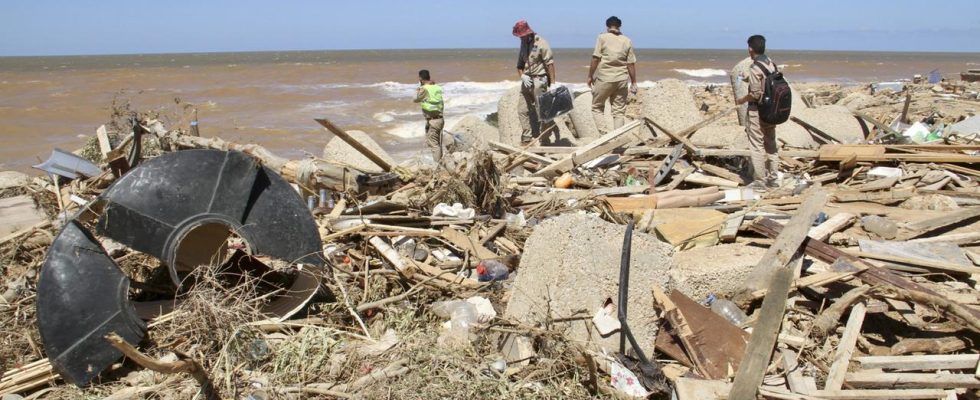They are apocalyptic images: the Mediterranean repeatedly washes up corpses from the Darna flood disaster, and there is a threat of epidemics. The people in the affected region despair and criticize the authorities.
Al Murzah, Ras Ettien, Al Bumbah and Ettamimi – small towns on the Mediterranean coast east of Darna. The consequences of the flood are now increasingly visible here too. Bodies keep washing up from the Mediterranean – people who were swept into the sea in Darna by the force of the tide.
Many of the bodies are taken to the hospital in Tobruk, about 150 kilometers east of Darna. Dealing with them brings new dangers, reports a doctor: “The corpses are now partially decomposed. This is dangerous for the helpers. We are not prepared to combat epidemics. We appeal to the responsible authorities to provide us with materials supplies that can protect us against infections.”
Libya
Floods in Darna
Buried without being identified
To prevent epidemics, the dead are buried as quickly as possible. Not all of them could be identified beforehand. More than 3,000 people have already been buried here, a representative of the eastern Libyan government said yesterday.
Even four days after the devastating floods in eastern Libya, the extent of the disaster remains difficult to assess. Satellite images of Darna show: Where there were houses near the riverbed before the flood, all that can be seen now is destruction. Abdel-Moneim al-Gheithy, the mayor of Darna, fears that the number of deaths will rise significantly. He said on Al-Hadath television that up to 20,000 deaths could be expected. This estimate is based on the number of neighborhoods and homes destroyed in Darna.
Four days after the flood, the full extent of the disaster cannot yet be estimated.
International help arrives
International aid is now underway; teams from the neighboring countries of Egypt and Tunisia as well as from Qatar, Turkey and the United Arab Emirates have arrived in the disaster area. The German technical relief organization announced that it would deliver tents, camp beds, blankets and power generators to Darna during the day.
Residents complain about a lack of support
The two competing governments in Libya have now announced that they will work together to coordinate relief efforts. But especially in the first two days after the flood, there was almost no help, residents of Darna and neighboring towns complain.
Mohamed Younis Deifallah lives in Susah, west of Darna. The storm also caused severe destruction in his city. The bare necessities are still missing, he reports. “No help arrived in our neighborhood. We call on the authorities and the army leadership to provide us with water.”
Criticism of dilapidated infrastructure
There is criticism not only of the halting aid, but also of the fact that the Libyan rulers have invested far too little in the dilapidated infrastructure in the region around Darna. The two dams in the mountains above the city that burst on Sunday have not been maintained for decades.

